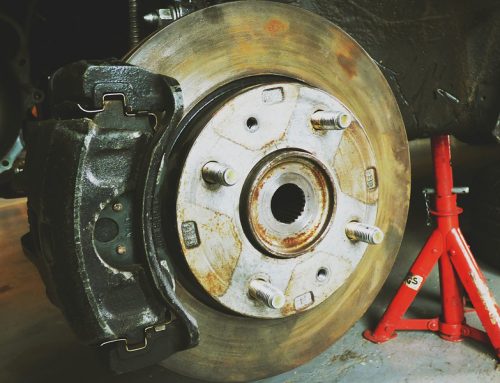How to Diagnose Brake Problems in Your Car
Thanks to the power of modern technology, there are many indicators to help give a heads up that your brakes may be problematic. By using this, in combination with intuition and your own senses, you’ll be able to easily make an assessment regarding whether there may be a bigger problem developing with regards to your brakes. This is not a part to skimp on, and is one of the most important parts of your car, as it ensures your safety on the roads each day. But how to we go about diagnosing any problems with our brakes, before talking to a specialist? Let’s explore this a little.
General Wear & Tear of Car Brakes
Before we look at diagnosing any problem with brakes, it’s worth considering that, first and foremost, and by no wrongdoing of the manufacturer, that your brakes are bound to get work down over time, and suffer the consequences of general wear and tear. This is how it works with anything you use on a daily basis, so it can be expected that you will need to resolve a problem related to your brakes at some point, over and above general service and maintenance each 15 000km.
While it’s easy to get worked up about any maintenance that has to be done relating to your vehicle, it’s not worth the fuss, and more importantly, you can spot bigger problems early, by following just a couple of steps, already putting you on the way of solving the problem.
How Do You Diagnose Common Brake Problems?
While it is vital to always use your senses as a first, in order to deduce that there may be a problem with the brakes, there are a couple of other indicators that might help make the process a little easier. Consider the following as you investigate:
- Firstly, is the dashboard brake light on? Make sure you check what it looks like in the user manual.
- Listen out for any squeaking, grinding or squealing when you’re driving and you use the brake pedal.
- Any wobbling or vibrating when you apply the brakes? What about a scraping sound?
- When last did you get the brake fluid checked, ensuring it isn’t leaking?
- Make sure the pedal isn’t “spongy” or soft when you try and apply pressure.
- Is there any kind of movement of the car (a side jerk, for example) when you apply the brakes?
- Do you notice a burning smell at all when you drive?
- Is the car responding normally when you apply a sharp brake (a quick reaction)?
Thinking Something is Wrong? Speak To An Expert About Your Brakes.
If any of those points made you do a double-take or raise your eyebrow, it’s time to speak to an expert about your brakes. Even if you are unsure, it’s worth checking in and getting a professional opinion, which can ultimately be the difference between a safe, hassle-free journey and a day full of troubles.
At Safety Brake & Clutch, they’re able to answer any questions you may have after your investigation into diagnosing that there is a problem with your brakes. Going through our checklist is the first step, and the answers are then something you can speak to the technicians about in your first conversation with them. They will be able to give you a better idea around what the problem may be while taking a peek under the hood to make sure it isn’t something else (or a bigger problem that needs addressing). Highly rated for their service, the team at SB&C offers more than just brake services, but should definitely be the first point of reference if you ever run into any problems in this area. Good luck!



